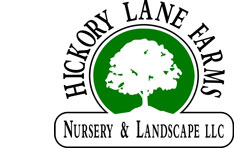Hickory Farms Newsletter – August 2016
The lawn care mystery made simple
I get a lot of questions about lawn care ……………….which we generally don’t do. We occasionally do seeding or sodding and we even mow a couple commercial properties but we don’t treat lawns. There’s a whole industry dedicated to spraying and mowing lawns. Those companies “mow, blow and go” so many lawns in a day that they can bill hundreds of households smaller amounts and make it profitable. Our specialty involves landscape gardens and trees which I find much more interesting than grass.
However………….nice green expanses of lawn are very functional and I know a little about grass. It’s not that difficult. Here are the thumb rules to follow to have a healthy lawn:
Mow high………….about 3” (this encourages deeper rooting to get through dry spells)
You can fertilize if you want but that’s not really necessary. Our clay soil is plenty fertile.
If you fertilize I’d suggest only in the fall to encourage root growth. Fertilizing in spring will increase the need for frequent mowing.
You can spot spray for broadleaf weeds a couple times a year when those weeds are a problem (the active ingredient to treat broadleaf weeds is 2,4 – D. )
If crabgrass is a problem you’ll need to use a “pre emergent” crabgrass killer in early spring to prevent it from sprouting. Crabgrass isn’t nearly the problem that broadleaves are. At least it looks like grass.
Most turfgrass is intended to go dormant in the hot part of summer. But I like to point out that “there’s a fine line between dormant and dead”. If we get a prolonged drought period it’s a good idea to give your lawn a “drink” just to keep the roots healthy. I’ve seen dry years where “dormant” lawns never recovered. Irrigation systems are extremely popular these days. It seems to be an easy sell to a new homeowner as a work saver. But I’m not a big fan of irrigation systems. It’s not necessary to water your lawn all summer, only as needed. Irrigation systems often overwater the adjacent beds. I often see automatic sprinklers running in the rain or spraying into the street. These systems also break down and waste water.
A lot is printed about aerating. This is more important for older lawns with a lot of “thatch” buildup. If your lawn isn’t at least 15 years old you probably don’t need to aerate.
Should you roll your lawn? Not really. I know it’s tempting to flatten those frost heaved rough areas in the spring but compaction is a bigger problem so you probably should just let the lawn settle down by mowing.
Having a nice lawn is an ongoing process, not a quick fix. You’ll need to follow the above suggestions on a regular basis over several years. It’s not necessary bring in topsoil or rototill your entire lawn and start from scratch as many folks feel they need to do.
These are just a few of my thoughts on the major points of lawn care. There are many specific situations and diseases that could be a problem but I won’t attempt to cover all those possibilities.


Comments are closed.